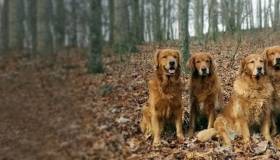April 19, 2018 – Imagine a world where all cancers are treatable and more cures are possible. This dream just got a little bit closer to coming true thanks to the amazing work of Morris Animal Foundation-funded researcher Dr. Rebecca Bellone and her team at the University of California, Davis.
The group recently identified a genetic mutation for eye-related squamous cell carcinoma (SCC) in Haflinger horses, a breed with a higher reported incidence of SCC. Findings from the study, published in the International Journal of Cancer, were used to develop a DNA-based screening test for Haflinger horses.
SCC is the most common eye-related cancer in horses and the second most common type of tumor found in horses overall. Untreated, this cancer can quickly lead to visual impairment and even loss of the eye itself. Even with treatment, no therapy for SCC is 100 percent effective and tumor recurrence is high, with approximately one in five horses experiencing cancer relapse.
“We found that Haflinger horses with two identical copies of the mutation are at five times greater risk for developing this cancer,” said Dr. Bellone. “Avoiding matings that could result in horses with two copies of this genetic risk factor should help to lower the incidence of SCC in the breed.”
In addition to the mutation risk factor, other known risk factors for ocular SCC include UV light exposure and lack of pigment around the eye.
“The risk factor we have identified is in a gene known to repair UV-caused damage to DNA,” said Dr. Bellone. “We recommend using a UV protecting fly mask on horses with two copies of the mutation. This is just one example of how understanding the genes involved can be used to reduce the risk of cancer.”
In addition, those horses with two copies of this risk factor should be examined more frequently by a veterinary ophthalmologist, noted Dr. Bellone, so that if cancer develops it can be detected and treated early, giving the horse the best possible prognosis.
For Dr. Bellone, the study is personal. As an owner of an older horse and equine researcher, cancer is an ever-present threat to the animals she loves. Although many companion animals adjust to vision loss, the compromise in vision can seriously impact a horse’s activity, which in turn impacts the close bond between horse and rider.
The new DNA screening test may be an eye cancer game changer as the mutation risk factor identified in Haflinger horses also was found in some other breeds. Dr. Bellone’s team currently is determining if this same DNA test could be used as a screening test for ocular SCC in other horse breeds
Across the country at North Carolina State University, Dr. Jennifer Luff and her team also are looking at the genetics behind SCC in horses. In their pilot study, they are gathering data on three potential SCC genes to see if these genes could be used as new therapeutic targets or as early cancer markers. The new information will be used to launch a larger-scale study into other potential genetic contributing factors to SCC in horses.




